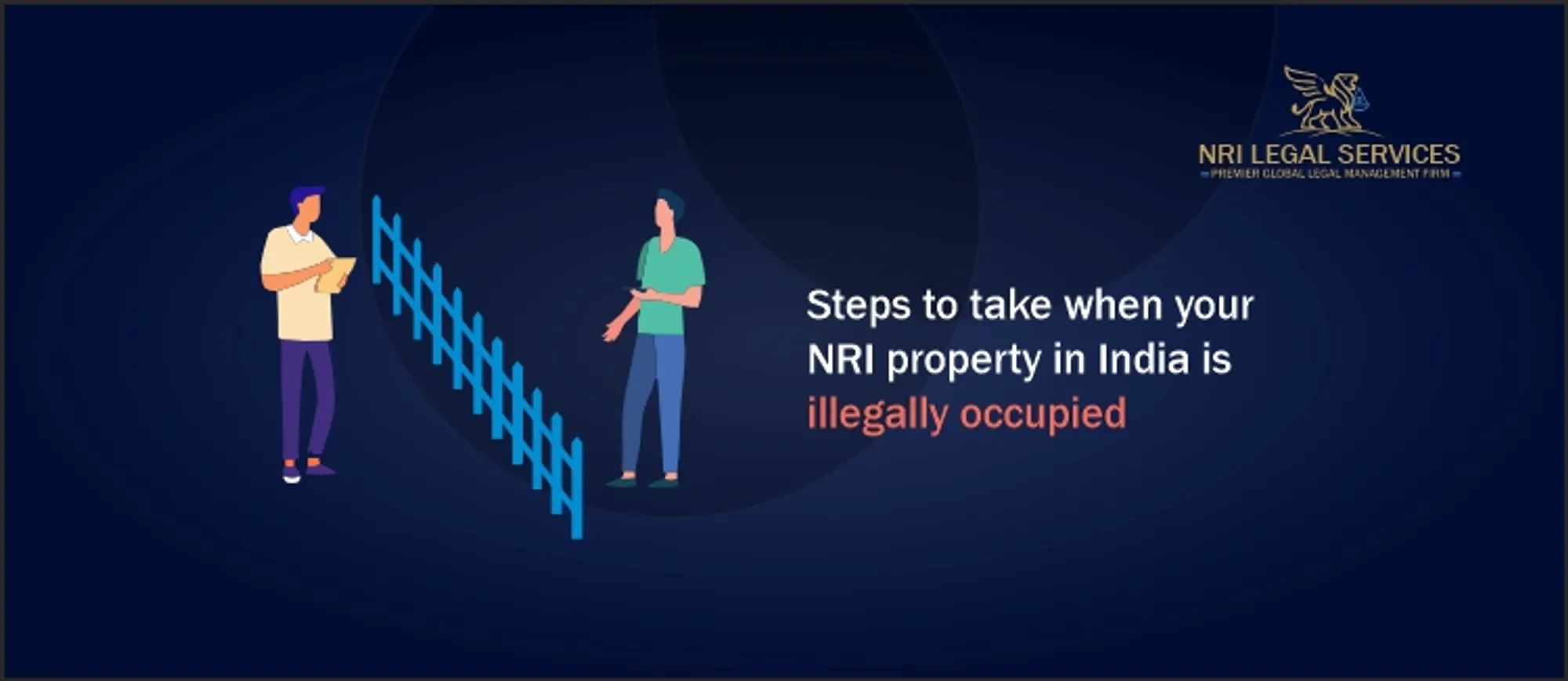Any property situated in India which has been purchased or inherited by any NRI is called NRI Property. And when such property gets encroached by any other person, in other words, when forceful possession of the property is taken by a stranger only with the intention to grab the property of the legal owner, then the occupier will be considered as illegal occupant. NRIs are not available physically in India to look after their properties and this is what leads to disputes related to NRI Property in India.
Table of Contents
Types of illegal occupation of property
- Occupancy of an encroacher: This is the most common problem faced by NRIs. The encroachers also prepare forged documents to secure his possession on the property. Having forged documents in their custody, they take the possession and easement rights of the properties, resulting which these occupants force NRIs to pay hefty amounts to restore their legal rights or force NRIs to sell them the disputed properties on low prices.
- Occupancy by previous tenants/care takers: Any person who is occupying a property with the permission of its owner is called care taker/licensee/tenant. The owner of the property decides in what capacity he wants to give permission possession to the second party but when such person refuses to vacate the property and continues to possess the same against the wishes of its true owner, the occupancy becomes illegal. NRI property is what allures the most to these types of occupiers.
- Occupancy by Co-owners: If the property is joint in nature, the co-owners take the advantage by taking possession of the entire property without specifying the share of other co-owners.
Must Read: Repatriation of funds by NRIs
Preventive and curative measures to protect NRI properties from illegal occupation of the property
Preventive Measures
- Original Documents: Being a Legal owner, NRI is required to keep all the Original Documents in his custody in proper order. Having all the original documentation puts you at a stronger footing in any legal battle as documentary evidence has a lot more weightage as compared to any other type of evidence in Indian Judicial system.
- Property Inspection: The NRI must ensure that his trusted local contacts in India keep visiting the property to check its status. This will prevent the chances of a property being illegally encroached.
- Mark the boundaries: It is always advisable to mark the boundaries of the land either by constructing boundary walls or by fencing the portion of land by barbed wire.
- Partition of property: Co-owners should get the property partitioned so that they can independently deal with the daily affairs of their separated shares.
Curative Measures
The NRI’s who are facing issues with respect to illegal occupancy of their properties can seek relief under various provisions of Indian Laws
Must Read: How NRIs in the US and Canada have to pay tax on capital gains from Indian mutual funds
- Legal notice can be sent
When there arises any dispute related to NRI property, NRI or any person authorised by the NRI through a Special Power of Attorney for doing so on his behalf can send a legal notice through their Advocate in which it is required to mention grievance along with the relief sought.
- Section 5 & 6, Specific Relief Act 1963
- Civil suits can be filed: – Following are the types of civil suits which can be filled in the civil court where the land in question is situated.
- Suit for declaration
- Suit for injunction
- Eviction suit
- Partition suit
- Suit for possession
- Police complaints can be made
Police complaint can be made by the NRI or any person authorised by the NRI through a Special Power of Attorney for doing so on his behalf, with the Superintendent of Police (S.P) where the property in question is situated.
Must Read: Family Property Partition for NRIs and OCIs in India
- Private Complaint can be filed in the Court
If the S.P. fails to take any action on the complaint filed against the illegal occupation of property, NRI or any person authorised by NRI through a Special Power of Attorney has a legal remedy to file a private complaint in the court through an Advocate.
Being an NRI, time period for staying in India is limited. NRI’s have short time period to solve disputes related to the illegal occupation of property due to one reason or the other and the most common is ignorance to the Indian legal system. Moreover, Legal battles are time consuming, so it is not possible for NRI’s to proceed with their case as per the Indian legal system. Now fast track courts are a welcome initiative by the government which can provide a speedy redressal system to the matters related to NRI’s. Secondly, while investing in the property, NRI’s are most commonly duped by the Property dealers due to lack of awareness among the NRI’s. To check this, property inspection plays a crucial role to check the status of the property and also safeguards the interest of the NRI’s against any fraud.

